Sid Meier's Civilization VII: Analysis and Assessment
After almost a decade of upgrades and enhancements to Civilization VI, Firaxis has launched Sid Meier's Civilization VII, one of the most anticipated titles in the series' history. As promised, the game retains its primary element of directing a civilization over the centuries, but with possibly the most significant alterations in the series' history.
In this review, we'll go over everything Civilization VII has to offer, including the new system that divides leaders and civilizations, the new three-age system, changes to the warfare and administration systems, and the problems players may encounter throughout the game.
Game material.
Civilization VII is a strategy game that is regarded as one of the most famous in its genre, providing a rich strategic experience focused on player roles. Each player takes turns managing their civilization, with the opportunity to conduct a limited number of tasks during their turn, such as moving armed units, constructing cities, and advancing science and culture.
When you first start playing Civilization VII, you'll notice a significant difference in leader and civilization choices. Unlike previous games, the player is no longer required to select a certain leader for each civilization; instead, each leader has distinct talents that may be used for any civilization available, allowing for more diversified strategies.
For example, you may select Ibn Battuta to lead the Chinese or Hatshepsut to lead the Romans. This versatility provides players with an unparalleled ability to create their own strategies, resulting in a fully unique gaming experience.
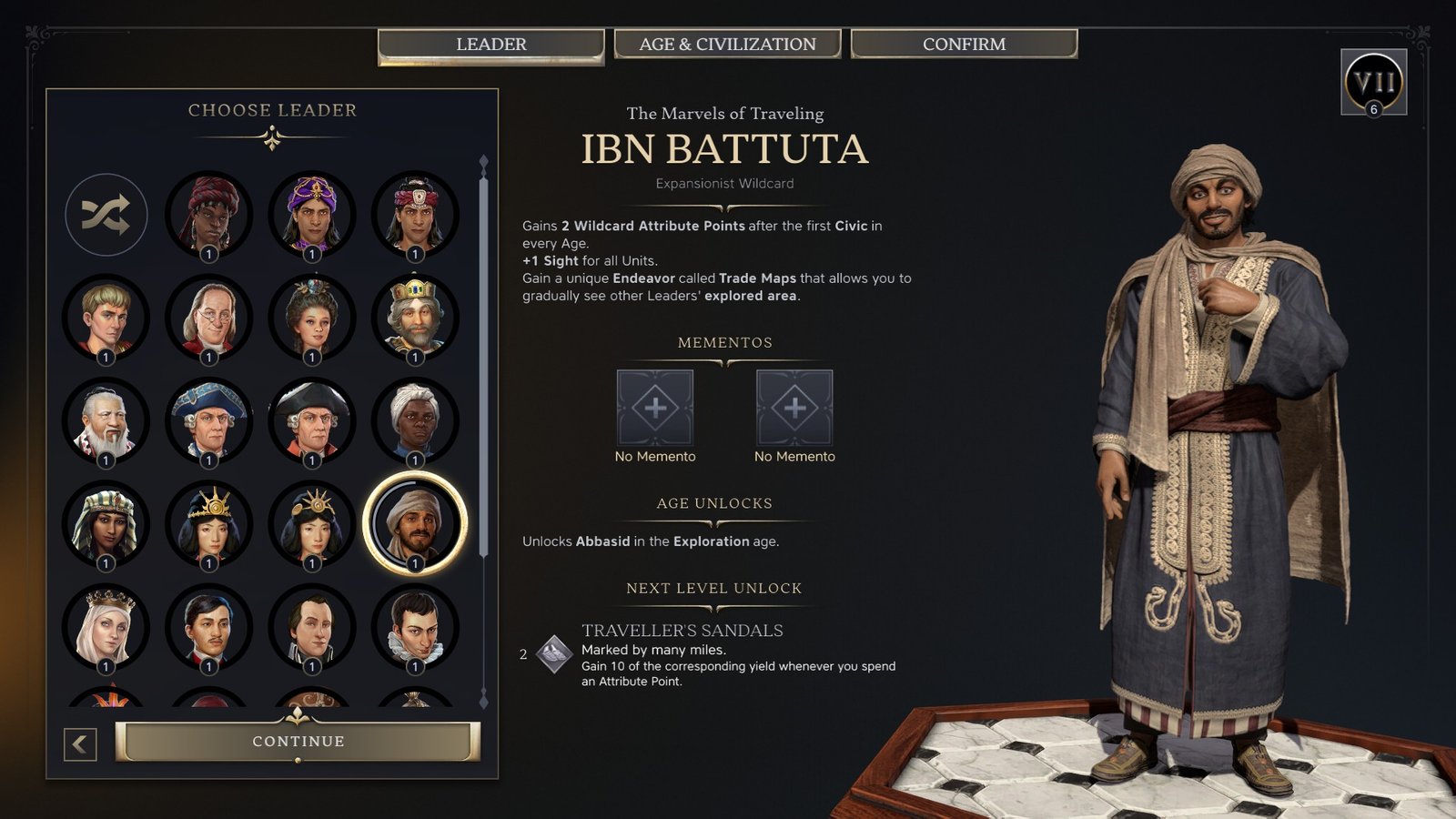
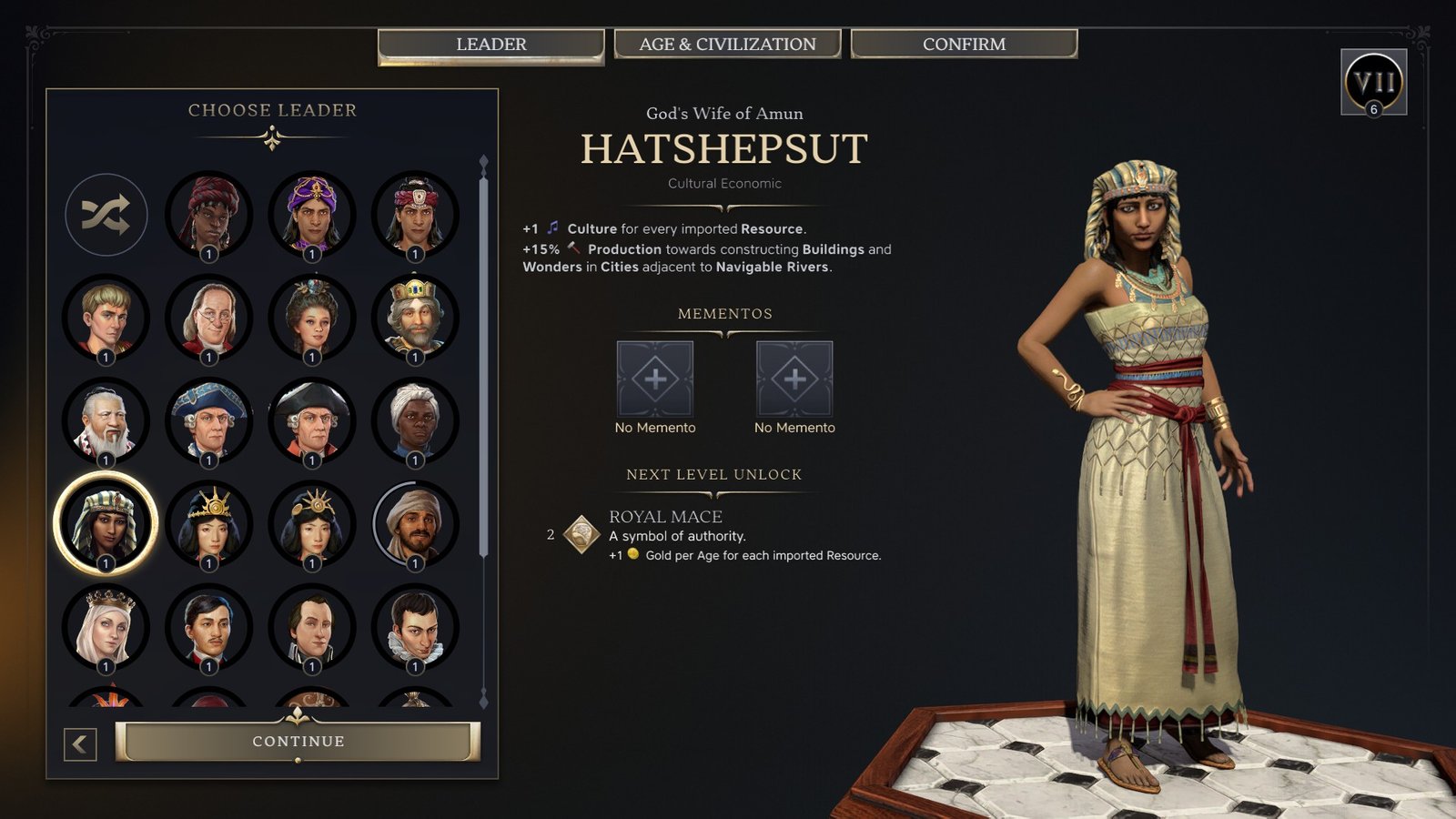
One of the most significant changes in Culture VII is that the player is no longer restricted to commanding a single culture throughout the game. Instead, you will have to make a choice. Three distinct civilizations.As you travel through three major eras, you must continually adjust to game factors.
Antiquity Age
This age marks the beginning of each civilization, with players establishing their first cities, exploring their surroundings, and interacting with nomadic tribes or autonomous cities. Players concentrate on creating rudimentary technologies like agriculture and writing, which pave the path for early governments and fundamental faiths. Decisions taken in this period have a significant influence on the future direction of civilization, such as determining the best site for a capital city and constructing the first Wonders.
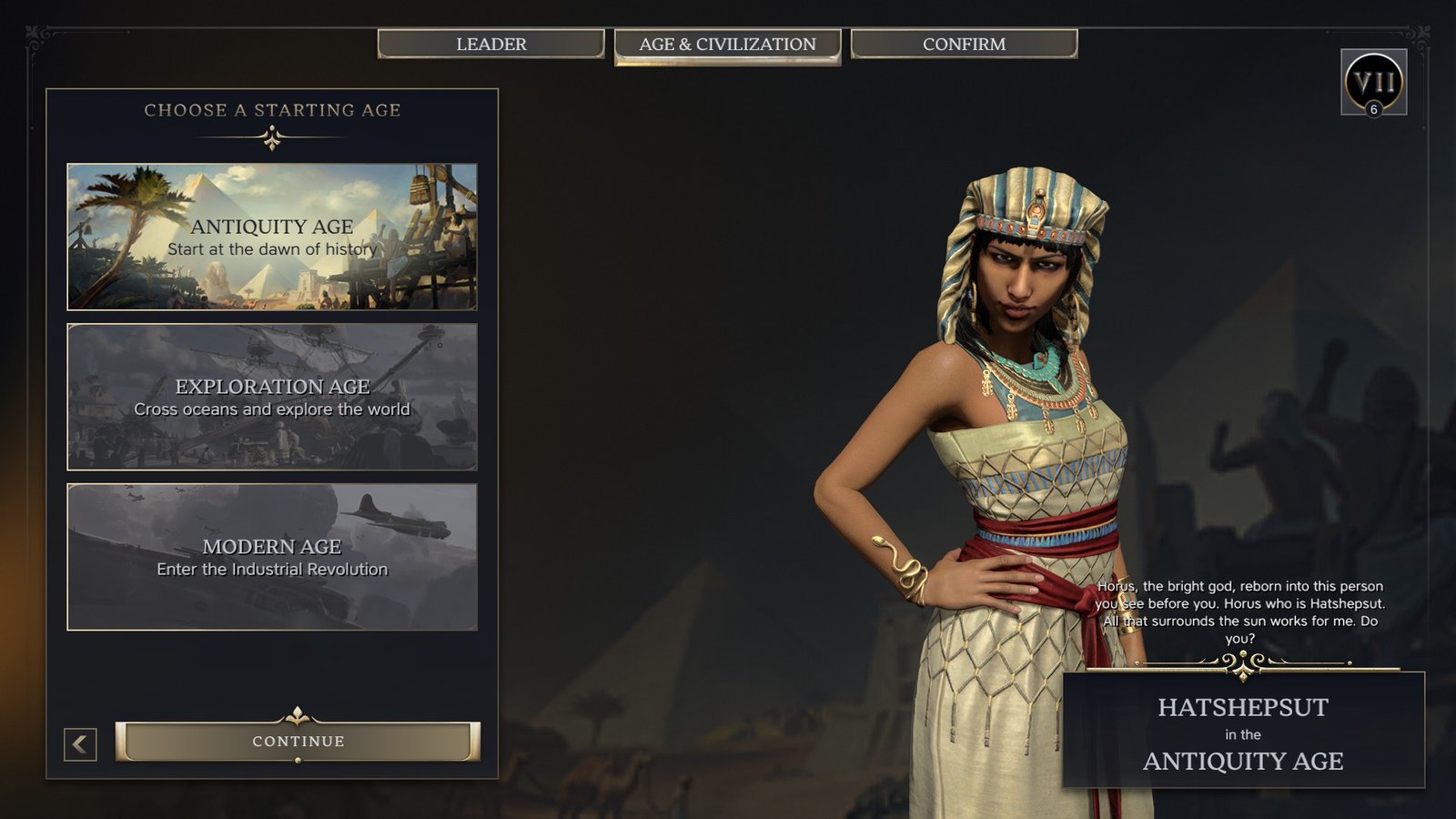
Age of Exploration
As civilizations evolve, borders extend with the formation of new colonies and cities. This is the pinnacle of geographical exploration, with players using improved ships and maritime trade to explore new continents and connect with other civilizations. The emphasis is on diplomacy, increasing armies, and utilizing natural resources in order to gain economic and military supremacy. Furthermore, this age witnesses the evolution of faiths and beliefs, paving the path for religious wars or cultural alliances.
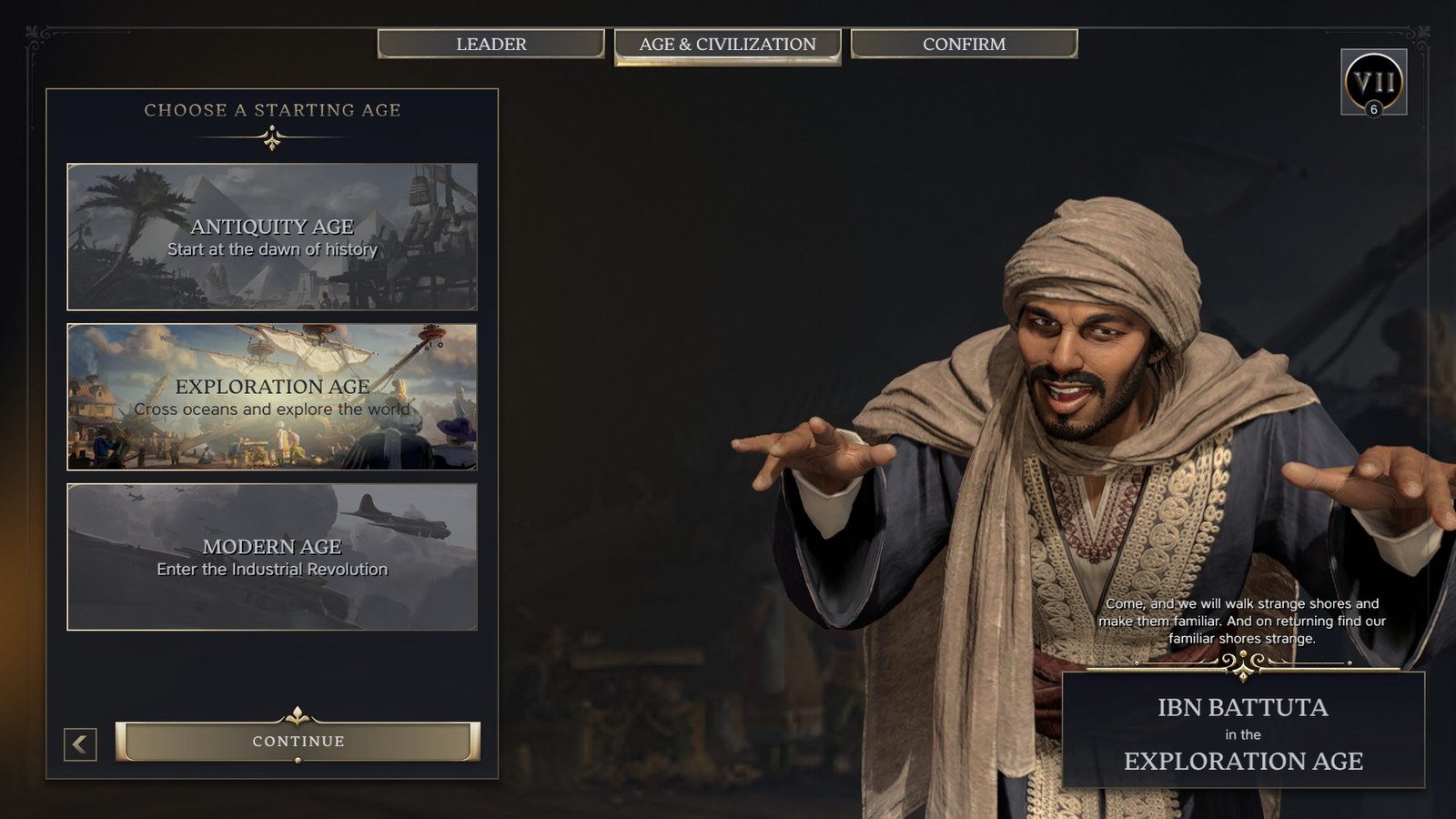
Modern Age
At this point, rivalry among players heats up as each civilization strives to impose its rule and gain victory by one of the possible pathways, whether through military might, technical superiority, cultural domination, or diplomatic success. This age is marked by significant advancements in industry and technology, resulting in an acceleration of events and the making of critical decisions that may alter the balance of power. Major conflicts, economic crises, and environmental changes all have a significant impact on the game's outcome, necessitating complex strategies and long-term planning for triumph.

Moving between these ages.Not simply a shift in time.Rather, it represents a significant overhaul of everything that occurs in the game. As you reject your present civilization in favor of an entirely new one, you retain your cities and army but have fundamentally different technology and distinct qualities. This makes every match unpredictable since players can no longer rely on their previous strategy and must continually adjust to new situations.
Positive aspects of the game
Managing armies and transporting military units has always been an important aspect of the Civilization series' gameplay, but it can seem tedious at times, especially as the number of units grows. The Commanders system was introduced in Civilization VII, enabling many troops to be organized into a single battalion led by a well-known military figure, making army management considerably easier and more efficient.
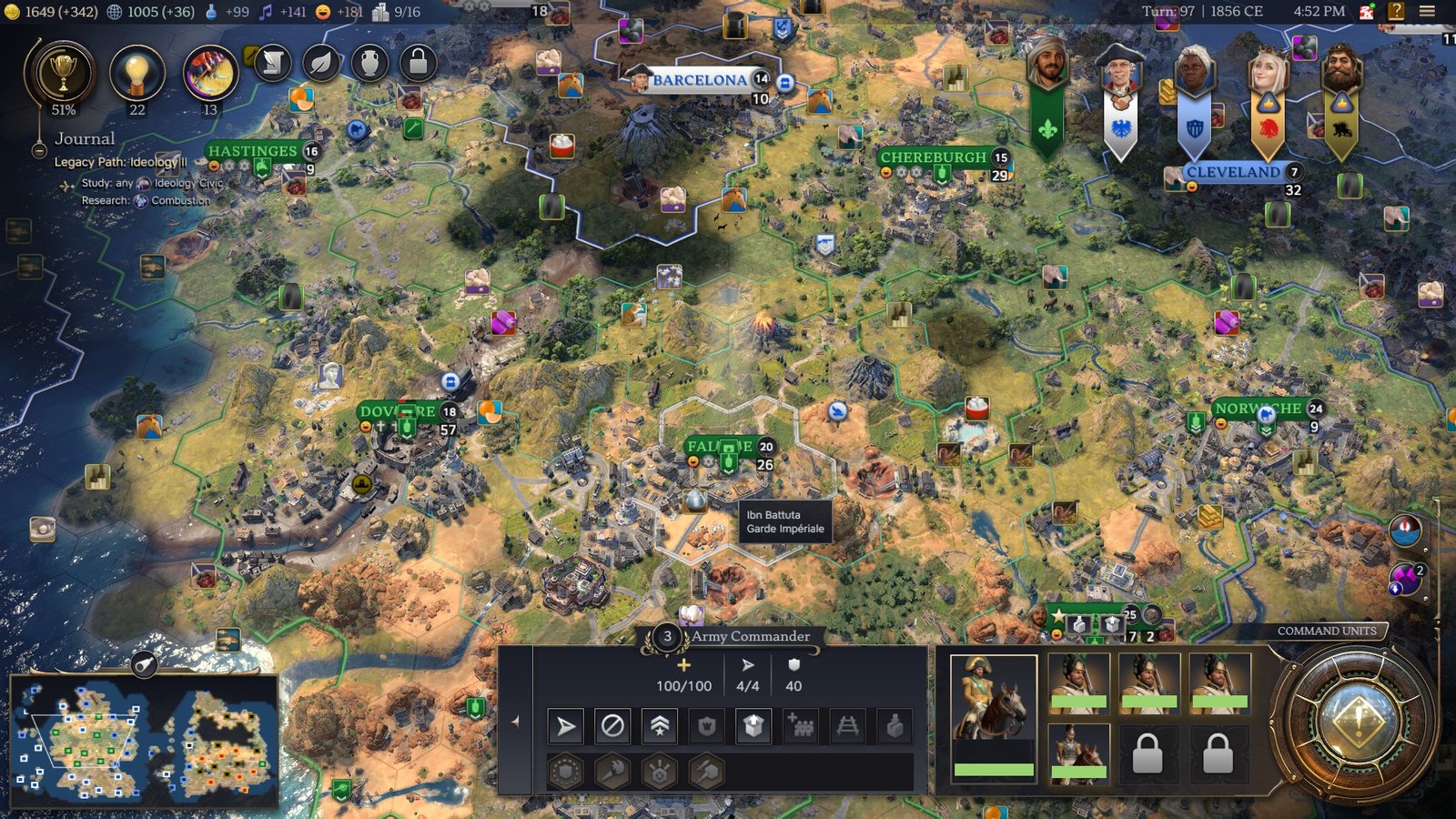
The Reinforcements System has also been implemented, allowing forces to be easily transported across the battlefield without the need to move each unit individually, decreasing complexity and increasing the fighting experience.
The most noticeable change is the elimination of the Loyalty System, which limited growth in Civilization VI. Cities are no longer prone to desertion due to low loyalty, allowing players to expand their empires without fear of losing them.
Builder Elimination—A Smarter Development System. In prior Civilization games, players had to physically train worker units and enhance the countryside surrounding their cities by constructing farms, mines, and roadways. This is no longer the case in Civilization VII, since land development is now done automatically depending on the city's demands and resources.
City and town systemIn Civilization VII, cities begin as tiny villages with limited powers, making management easier in the early stages. These villages do not require considerable maintenance and gradually evolve into larger cities over time, resulting in a more ordered and seamless growth experience.
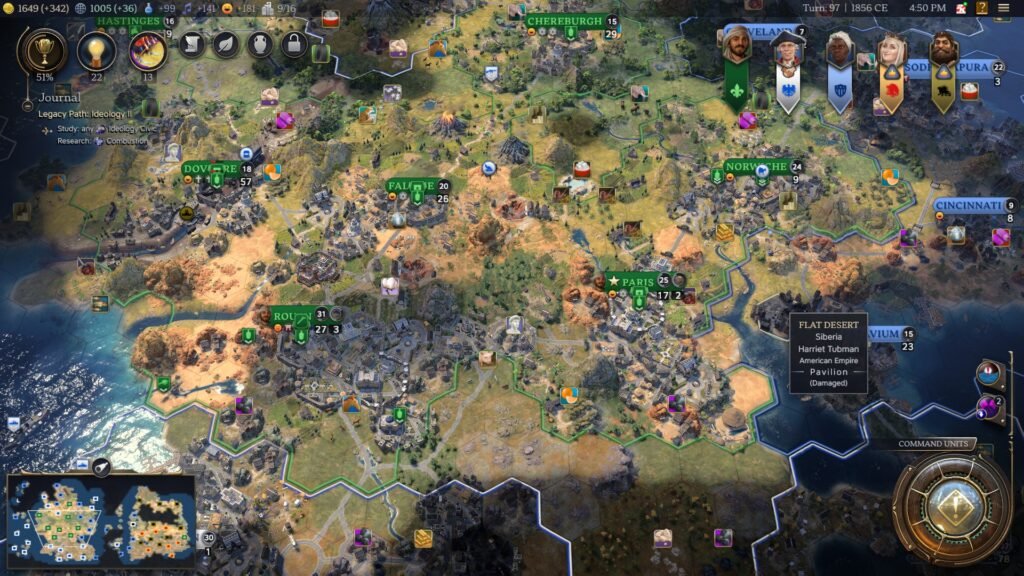
One noticeable improvement is better relations with debtor nations, which are no longer merely little entities with limited benefits but also play a more prominent role. It may now be organized into strong coalitions. They provide strategic benefits, such as military assistance or economic incentives, paving the door for their wise use in diplomatic initiatives.
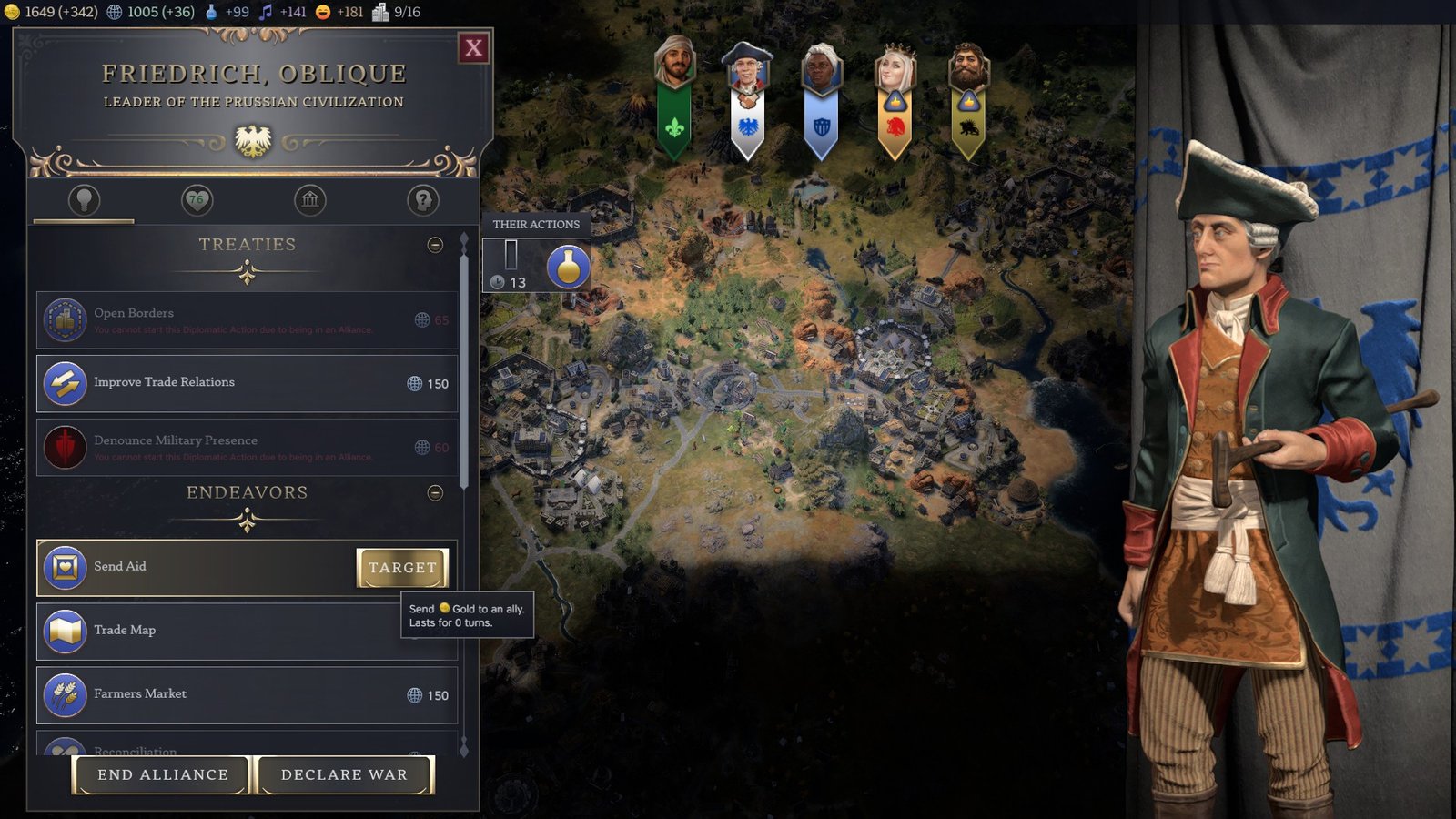
Additionally, the possibilities have been broadened.Economic and military penalties provide players with additional options for exerting pressure on opponents without having to engage in direct combat. Trade restrictions can be implemented, a country's diplomatic influence lessened, or coalitions formed against a dominating culture, providing another degree of strategic depth.
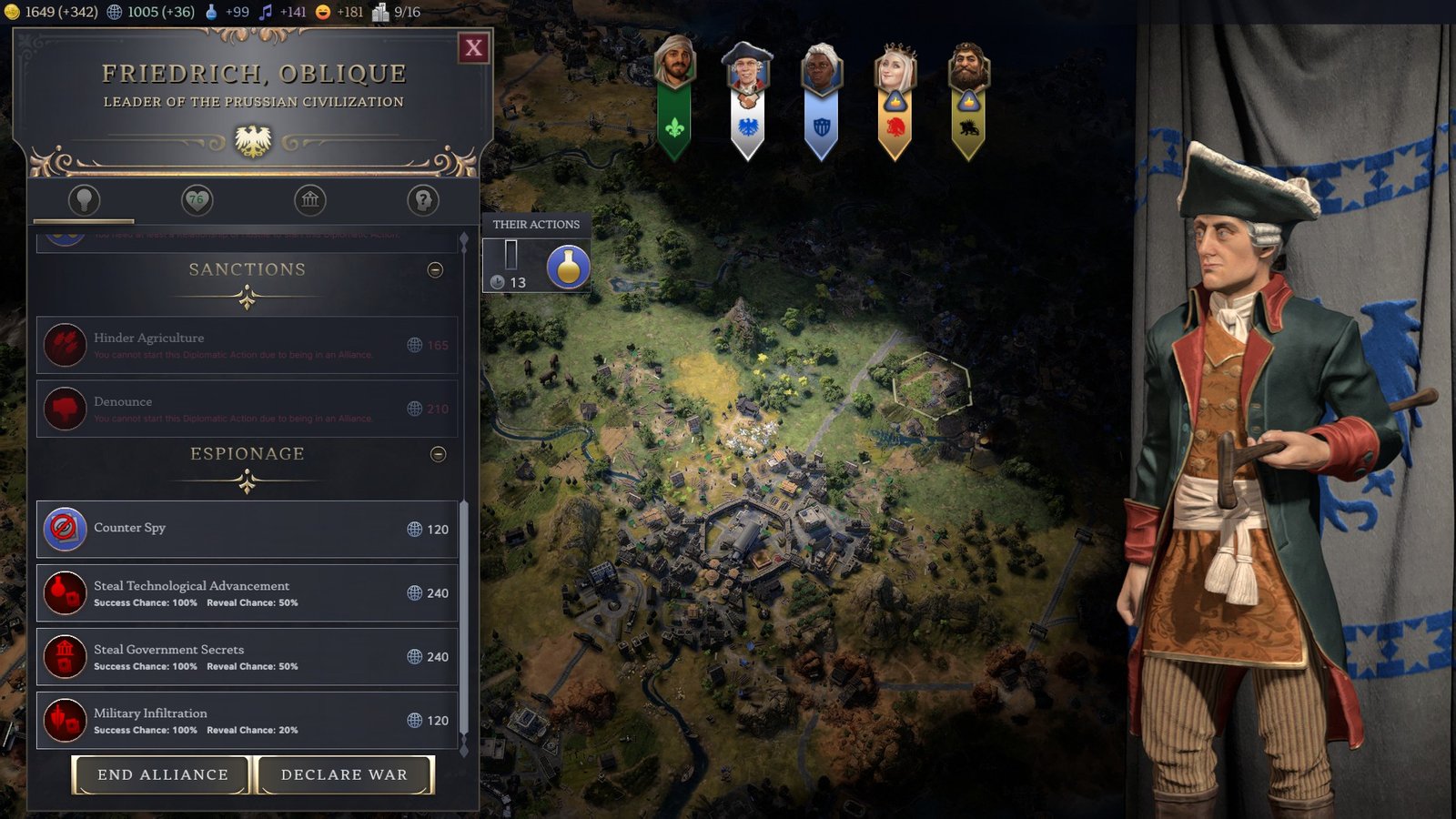
But leaders' behavior It has grown more dynamic and engaging in the context of events. Instead of the random acts or predefined patterns we observed in prior portions, leaders will now adjust their decisions based on the political and military environment, making diplomacy both reasonable and tough.
One of the most important modifications is the Enter Live Service System, which ensures that the game will receive regular upgrades and enhancements in the next years, whether free or purchased. This strategy tries to keep the game current and fresh by constantly improving and introducing new material that enhances the users' experience.
The level of team play has improved. Accelerate turns and decrease lag.When playing online, it makes group sessions smoother and less frustrating because of the long pauses between rounds, which were a problem in prior iterations.
Game Cons
Despite the major advancements made in Civilization VII, there are several things that may irritate experienced gamers. For example, the Auto-discovery feature was deleted.For scouts, this move appears unusual considering the efforts to eliminate micromanagement components.
Artificial intelligence, on the other hand, continues to suffer from the same weaknesses. Some civilizations build cities in irrational locations, such as minor gaps between villages. On higher levels, the game uses unfair resource and military power reinforcements to compensate for erroneous AI actions.
Game options appear to allow only minimal customization.Compared to prior editions, there are less choices for adjusting map type, civilization distribution, or beginning preferences, making the experience seem monotonous after a few play sessions.
Is Civilization VII worth purchasing?
Certainly, Civilization VII is one of the series' most ambitious titles.So far, it has made significant modifications to the gameplay, making it an unfamiliar experience even for seasoned gamers.

